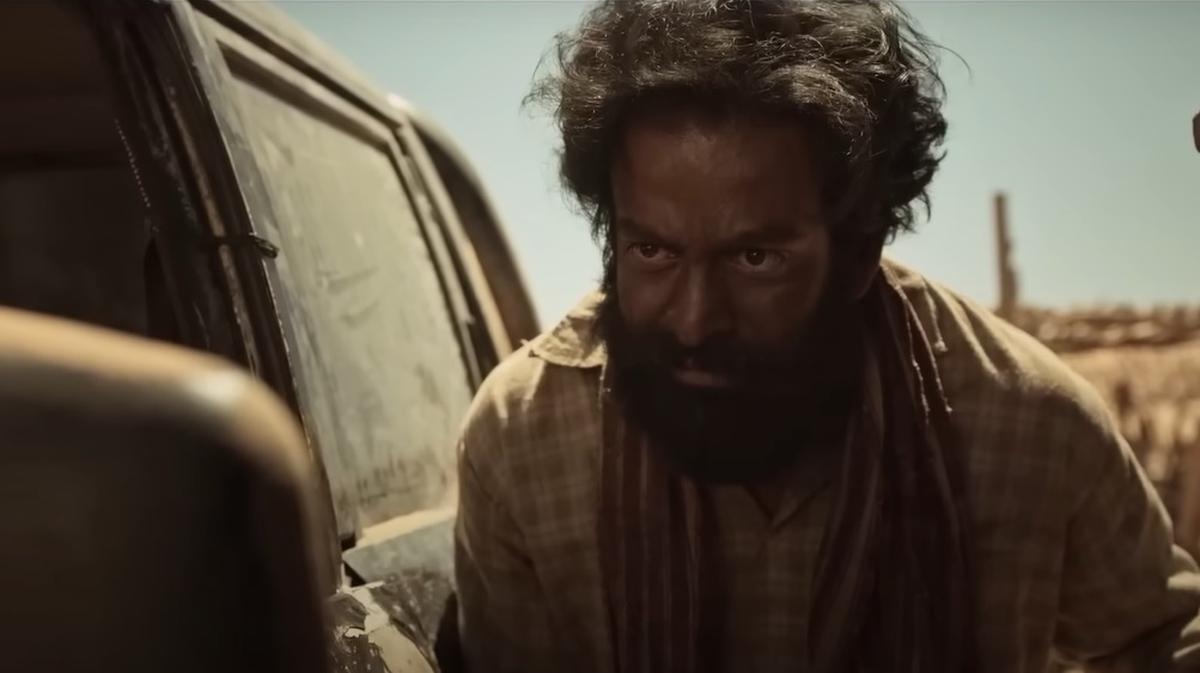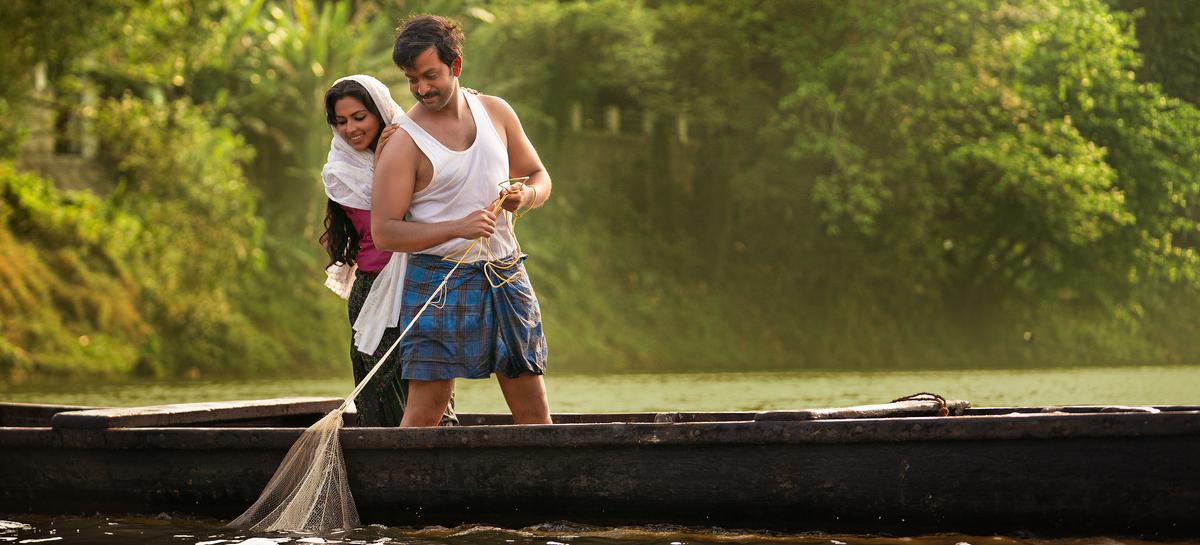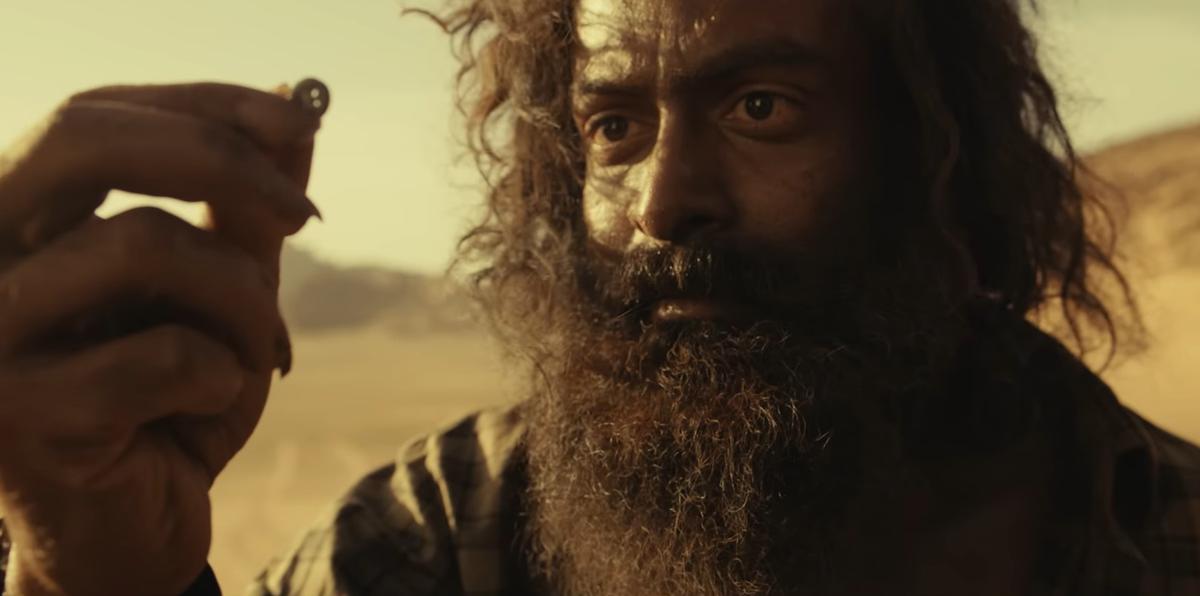Prithviraj Sukumaran is not someone who rests on his laurels. Just a week after the release of his much-awaited Aadujeevitham, the actor is all set for the second schedule of L2: Empuraan. “I’m proud and happy about Aadujeevitham and couldn’t be happier with the way it’s being received. It’s a film I’ll cherish for life but nothing is going to change. The very next day of the film’s release, I was back at work to wrap up another film; this weekend, I’ll begin work on the next schedule of my next directorial.”
But for now, he is happy to discuss his epic project that was in the making ever since director Blessy wanted to adapt the novel it’s based on since he first read it in 2008. As Prithviraj neatly summarised it during the film’s pre-release promotions, when he gave his nod for the film, he was single, obviously not a father and hadn’t turned producer or director; Aadujeevitham has been with him for 16 years. It’s not often one gets to work on a film, the making of which warrants a film on its own!
Excerpts from a conversation:
Films have gotten dropped for reasons that are half as difficult as what your team faced while making ‘Aadujeevitham’; the perseverance of its lead character could even be called a parallel to those who worked on this film. What kept you all going, especially through the tough stretches during the pandemic?
I have to be very honest; the single reason that kept us going is Blessy. The entire process never really shut down because of that one man’s conviction and focus. We started shooting only in 2018 though we set out to do this film in 2009… and that’s almost ten years. In those ten years, the whole world was telling me and Blessy to move on as this was not going to happen (smiles). I have asked Blessy multiple times if we can do something else and circle back to this script later. It was his vision that kept us going.
Staying in character is one thing, but showing the years of abuse and ill-treatment that transforms this character into someone who can’t talk or walk properly probably needed constant tweaking as the film progressed. How did you go about it?
As you rightly said, the character arc is complex and lengthy. Right from the beginning, I knew I could not approach it like another film where I would create one singular arc for my character. Blessy and I had a long discussion somewhere around 2015 and we decided to compartmentalise it into three phases. For convenience’s sake, Blessy and I keep referring to it as the “three weeks, three months and three years” phases. The first one would be Najeeb’s first three weeks in the desert. Then we see him three months later for an episode there. Then the narrative breaks, and we finally see him three years later.

These three phases had three different pitches for the character. In the very beginning, he’s trying to fight reality; he’s in denial and he’s telling himself how it’s a mistake that will mend itself. So you see him trying desperately to convince people around him on how he’s not supposed to be there. He genuinely thinks he will get out of it the very next day and that’s the phase of denial. Three months later, we see that he has realised that he’s trapped and angry at his predicament, the world in general and God. Three years later, he has metamorphosised into almost part-animal and come to terms with the fact that this is his life which he has to live through no matter what.

Prithviraj Sukumaran in a still from ‘Aadujeevitham’
| Photo Credit:
Prithviraj Productions
I had specific body language additions and changes in mind for each phase, and they were designed as part of the story. When you’re looking at the three-month phase, you realise that his hair and beard are grown; so the thought process was that he is not fully used to the lack of cleanliness. You see him constantly scratching himself. As he’s walking in the desert with loose pants, his gait has changed, and he’s dragging his feet a bit.
Three years later, he’s one among the animals; the life, the smell, and the lack of cleanliness do not bother him anymore. So we see him not being restless but he’s got a neurological blinking condition as the desert air dries your eyes, so he blinks a lot. By then, his Arbab (Persian for boss/master) had hit Najeeb’s ankle with a rifle probably fracturing it and without medical aid, the bone would have incorrectly mended itself. His right leg is twisted, his gait is more different and he has a hunch. All the body language differences and performance arcs were based on what we thought the time, elements, circumstances and experiences would do to him.

Arguably the best sequence of the film is when Najeeb sheds his clothes, revealing how impoverished he has become over time, as he walks to the water tank and gets to wash his face. Can you walk us through the shot?
I kept telling Blessy to push that shot to the absolute end because I knew I would continue my weight loss journey to that point. Unfortunately, when the pandemic struck and we got the news that the shoot might soon get shut down, Blessy wanted to get that shot out of the way and gave me a date on when we would shoot that scene. I got into this heavy fasting cycle where I was fasting for 72 hours at a stretch and towards the end, I had dehydrated myself for 48 hours.
I know there’s a shock value to it… but it’s not just that. The only instrument available to me as an actor to show what he has gone through over the last three years, was to show the audience how he has transformed physically. The body is pretty much a screenplay instrument then. I wanted to push myself as much as I could, as that’s the only point as an actor when I can tell the audience without any lines what Najeeb has gone through. I’ll never claim it was easy and I’ll never advocate it to anyone else, not even to other actors. I did it because like in all my films, I went all-out and it achieved the effect.

Amala Paul and Prithviraj in a still from ‘Aadujeevitham’
| Photo Credit:
SPECIAL ARRANGEMENT
How did you ascertain that the physical transformation has reached its peak?
I didn’t even know if that was the peak. If we had shot the scene a month later, I would have continued the process for another month. But before that schedule, I had lost a lot of weight and wanted to push to lose a couple more kilograms. I went to a wellness facility in Austria where one of the after-effects of the program was weight loss. On the first day, during the diagnosis, the first thing the doctors who went through my readings told me was that I had to put on some weight immediately (laughs). I told them my goal and they said they would not allow me to lose more weight; that’s when I realised it!

The film has opened to positive reviews but a section of the audience finds some portions of it, especially in the second half, to be a tad too long. How do you react to such criticism?
Firstly, I completely respect all the opinions and if someone feels the film didn’t resonate with them or found some stretches lengthy, I respect that. I’d be the last person on earth to claim that we’ve made a perfect film. No film is perfect, neither is Aadujeevitham. To specifically answer your question, the second half… once the escape starts, it almost feels like there’s no end to it. The helplessness Najeeb feels should start to set in, and make the audience also think that his escape is a never-ending ordeal until he finally finds the road. That’s what worked for Blessy and me, but I completely get that it’s a piece of art that will resonate differently with others.
You have headlined great titles on your home turf in Malayalam, while also being a part of noteworthy films in other languages. Is this a planned strategy?
This question is an opportunity to sound really cool by saying this is all part of my grand design, but unfortunately, it’s not (laughs). I think I’m lucky to resonate with filmmakers across industries who want to work with me, and it’s strange because I have never gone in search of my next film thinking this is the genre or language that I want to work on now. The next film I do is the next good script I find. If tomorrow I find an interesting Assamese script or a Bhojpuri filmmaker comes to me with a good story, even if I don’t know the language, I’ll do it and even try my best to dub also.

Prithviraj Sukumaran in a still from ‘Aadujeevitham’
| Photo Credit:
Special Arrangement

A recent viral video of yours was about your take on nepotism and the comments on it were appreciative of how you were open about it. But does it bother you that it’s still a topic of conversation though it’s been more than two decades since you became an actor?
I get the question quite often, especially when I speak to media from the north and tell them the same thing. It’s not something I want to show off, but it’s not something I’m ashamed of either. I’m who I am; I’m my father’s son. Did I get my first film because I’m my father’s son? Obviously, yes, I did. I’m intelligent enough to understand that it’s because my surname is Sukumaran and he was a famous Malayalam actor. There’s no escaping that reality. But I believe I only got my first film because of my surname, and from there on, I was on my own. That way, cinema is a great leveller. You can be anyone’s son or daughter, but that will not save you from being judged by the general public. Cinema is not a field where you can be safeguarded by a board of directors you have hired. How much ever you’re protected, come that Friday, you have to bear it all and stand for judgment.

Finally, how is your directorial ‘L2: Empuraan’ shaping up, and has it not been a while since you starred in a Tamil film?
I’ve finished one schedule in North India, one in the UK and one in the US for Empuraan and the next schedule is in Chennai. I’m at about 20 per cent of the film and I hope to finish it this year and release it next year.
Meanwhile, there are a couple of Tamil scripts I’ve said I’ll listen to. I would love to star in a Tamil outing again, as I have really fond memories of working in Kollywood and it has given me some really special films.